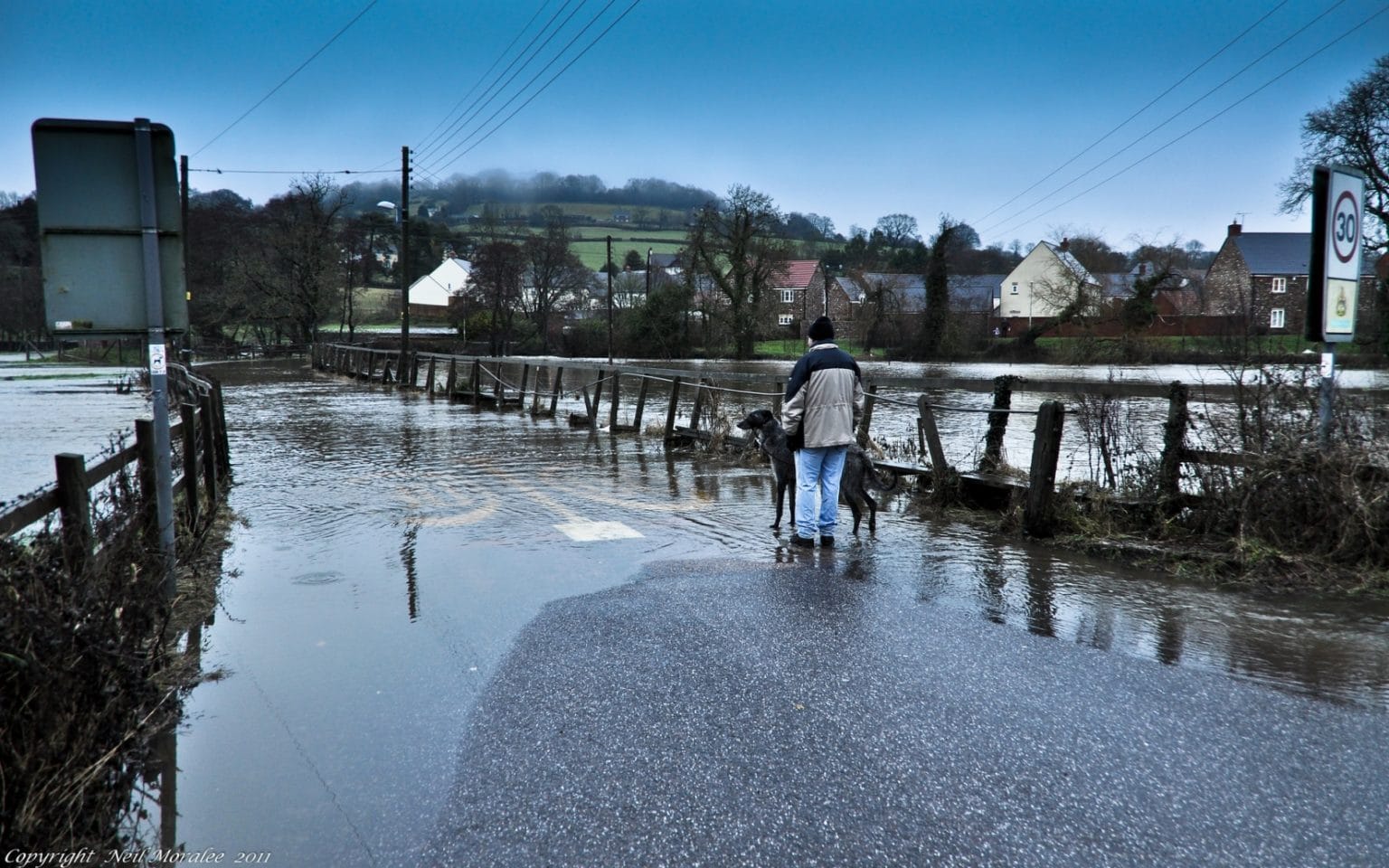Local governments across England have drastically cut climate change staff, calling into question their ability to prepare for the effects of global warming, and to deliver progress and reporting for the UK’s ambitious new carbon budget, analysis by DeSmog UK has revealed.
Data from Freedom of Information (FOI) requests regarding the number of dedicated staff working solely on climate change in 38 councils – representing over ten percent of principal councils in England – shows more than half have cut climate and sustainability positions since 2011.
Some, including cities such as Southampton and Nottingham, no longer have any staff working directly on climate issues.
Councils are struggling to to comply with current obligations, DeSmog UK‘s investigation shows, while others have scrapped or radically scaled-back climate programs.
“We clearly lost people alongside budget cuts [in 2011 and 2015], you see councils everywhere panicking, climate change simply isn’t a priority for them anymore,” one climate officer employed by a Unitary Authority in the northern England told DeSmog UK.
Several current and former local government climate and sustainability officers agreed to speak to DeSmog UK about the cuts, but asked not to be named.
Most connected the staff losses to austerity measures introduced by the coalition government in 2011 that saw local government’s spending power cut by 27 percent in real terms between 2011 and 2015.
They say that without a strong incentive from central government to pursue climate issues, their jobs and budgets were among the first to be cut.
This means that ambitious action on carbon reduction and climate adaptation that many councils undertook in the heady days following the UK’s world-leading passage of the Climate Change Act 2008 has either stalled or is gone completely.
But council officials insisted climate change was still a priority. Nottingham councillor Alan Clarke noted that the city has achieved carbon emission reductions of 33 percent since 2006. He said climate change staffing changes were due to the issue now falling under the city’s energy policy service, saying “responsibilities have been realigned”.
Norfolk County Council said the role of ‘Climate Change Manager’ was removed in 2014 due to a “reappraisal of existing roles and responsibilities,” and carbon reduction was now managed by the “Corporate Property Team”.
Southampton City Council said its 13 person sustainability team was disbanded in 2014, with employees either having their “function adjusted or have left the council for various reasons.” In response to the FOI request, Southampton also released budget figures showing that annual funding for climate-related issues had fallen by more than 70 percent from its 2011 peak of £385,300.
Cost Efficient Carbon Reduction
“I would suggest that the whole carbon agenda no longer exists at the local level” said another employee who has worked on environmental policy in local government for over a decade. He said carbon tracking initiatives he had proposed had failed to move past council, and his work was now entirely dependent on providing cost savings first.
Several other current and former council officers confirmed that much of their work is now tied to short term savings through energy efficiency measures.
The officer from northern England said she “can’t promote anything that reduces carbon without monetary savings”. She added that longer term plans were encouraged and funded before the change in government.
Climate Local, a 2012 Local Government Association initiative that asked councils to set “specific and measurable” actions to reduce carbon and prepare for climate change, reported that as of 2015, less than half of the nearly 100 councils that agreed to take part in the program have submitted a progress update. This suggests many councils across the country are similarly stalled or backsliding on commitments.
But some councils maintained their commitment to climate action, even under the challenges of austerity. Birmingham City Council’s response to DeSmog UK’s information request shows it has added a significant number of climate staff over the past decade. The city currently ranks highly on international evaluations of climate preparedness.
Bristol City Council has also consistently prioritised long term investment in decarbonisation and sustainable energy, winning the European Green Capital award in 2015, and committing hundreds of millions of pounds to renewable energy projects. Bristol has committed to becoming carbon neutral by 2050.
Photo: Train Photos via Flickr
Bristol City Councillor Helen Holland said Bristol’s commitment to climate and environmental issues has remained strong through changes in local and national government, and that there are lots of places local government can have a major effect, from engaging the public to integrating climate into city planning.
She said: “We’re trying to say to everyone that this is your issue. The obvious places are transport and waste and planning, but even when we’re looking at economic development, when we’re looking at public health. All of those contribute to your climate change objectives. We’re expecting that when you come up with a policy initiative to let us know how it helps us meet our targets.”
But while some local governments are planning well into the future, others are struggling with even their present commitments.
Climate Reporting and Adaptation
One former climate officer from southern England claimed that some councils were so understaffed they were even failing to complete their mandatory greenhouse gas emission monitoring reports to DECC, the Department for Energy and Climate Change (now the Department for Business Energy and Industrial Strategy, or BEIS). These reports inform the UK Greenhouse Gas Inventory (GHGI) which is the basis for the government’s reporting to the UNFCCC, and tracking its own carbon budget.
Similarly, the Committee on Climate Change warned in its 2015 Report to Parliament that budget cuts were impacting the ability of local authorities to adapt to climate change, and its latest climate risk assessment paints a bleak picture of the future: with flooding, heatwaves, and disease all projected to increase as the country deals with warmer and more extreme temperatures.
Despite this, local climate officers told DeSmog UK there was “not much being done” around adaptation, and that it had “totally dropped off the radar”.
They said in addition to budget cuts, central government programs to promote and monitor climate adaptation had been scrapped, leaving them with little guidance.
Since 2010 local government has had a statutory duty to manage flood risk, including accounting for future increases due to climate change, but support for more comprehensive and longer term planning has fallen away. This includes the nationwide National Indicator framework, disbanded in 2010, which required participating councils to report climate adaptation plans and progress under NI-188 ‘Adapting to Climate Change,’ and the Environment Agency’s ‘Climate Ready’ initiative to support and co-ordinate local government’s adaptation efforts, which was closed in March 2016.
In response to an FOI request from DeSmog UK, the Environment Agency confirmed that 17 staff working at Climate Ready were either moved or made redundant this year.
Those sort of cuts have been mirrored across all levels of government over the past half-decade, from government-wide reductions in adaptation funding under Environment Minister Owen Paterson, to recent cuts at the former DECC. The Department for Environment, Food and Rural Affairs is now working with just one-third of the core staff it had in 2006. And in addition to the obvious damage at the central government level, the cuts have also left many local workers feeling unsupported and cut-off.
“At the same time as we were being axed, our contacts at the Environment Agency and DECC were being disbanded,” one former local officer in southwest England said. Others said there was little regional co-ordination anymore, with regional partnerships like Climate Northeast and Climate Southeast quietly dissolving, leaving local governments to pursue their own projects with limited resources and no clear guidance.
Elizabeth Wilson, Reader in environmental planning at Oxford Brookes University, said it’s a shame that councils have been left adrift. She believes that local authorities are working at the “best level” to address climate change.
“They have the role of being a regulator of land use and air quality, as well as being major property owners,” she said. “Other agencies just don’t have that sort of integrated role, or control over so many factors.”
Previous governments appear to have recognized that. “Tony Blair, say what you will about him, was supportive of our work. We we’re able to do more and more until the coalition came in with cuts,” the climate officer from northern England said.
“This government certainly won’t fund anything to do with climate change,” she added. “We’re not really doing anything to prepare for the future.”
Photo: Neil Moralee via Flickr
Subscribe to our newsletter
Stay up to date with DeSmog news and alerts







